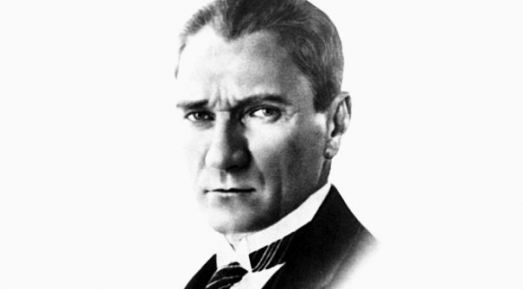
Meşrutiyet'in il¢nından sonra İttihad ve Terakki Cemiyeti ve Mustafa Kemal Atatürk
Eski Toprak paylaştı.
"Meşrutiyet'in ilânından sonra İttihad ve Terakki Cemiyeti'nin 1909 Eylül'ünde Selânik'te yaptığı İkinci Kongre'ye Mustafa Kemal (Atatürk) de katılmıştır. Mustafa Kemal, kongrede yaptığı konuşmada, yapılan hareketin bir "inkılâp" değil, bir "ihtilâl" olduğunu ve şimdilik sadece sarayın nüfuzunun kırılmakla yetinildiğini ve asıl inkılâbın bundan sonra yapılması gerektiğini söyledikten sonra şu noktaların gerçekleştirilmesini teklif eder:
1) "Cemiyet"in bir siyasal parti haline getirilmesi.
2) Ordunun politikadan çekilmesi.
3) Cemiyet ile Masonluk arasında hiçbir bağlantının kalmaması.
4) Cemiyet içinde eşitliğin sağlanması.
5) Hükumet işleriyle din işlerinin birbirinden ayrılması (laiklik).
Gerçekten, cemiyet kısa bir süre sonra parti (fırka) haline getirildi. Fakat bu zorunluydu. Çünkü seçimlere katılabilmek için "parti" olmak gerekmekteydi. Fakat Mustafa Kemal'in diğer noktalardaki tavsiyeleri hiç göz önüne alınmadı. Ayrıca İttihad ve Terakki içinde Mustafa Kemal'e karşı bir düşmanlık doğdu. Ordunun parti ile bağlantısı kesilmedi. Birçok subay partiye dayanarak ordu içinde yükselmeyi tercih etti. Cemiyet, bir parti haline geldi; fakat "eşitlik" söz konusu olmadı. Partiyi, etkin kişilerin dahil olduğu bir komite yönetiyordu."
Prof. Dr. Fahir Armaoğlu, 19. Yüzyıl Siyasî Tarihi, Timaş Yayınları, 17. Baskı, Kasım 2017, İstanbul, s. 588-589.
"After the proclamation of the constitutional monarchy, Mustafa Kemal (Atatürk) participated in the Second Congress held in Salonika in September 1909. Mustafa Kemal, in his speech at the congress, made a "revolution" and not a "revolt ". and after saying that it is and that it is only to break the influence of the palace and that the real revolution should be done thereafter, he proposes the realization of the following points:
1) Making the "Society" a political party.
2) The withdrawal of the army from politics.
3) There is no connection between the Society and Freemasonry.
4) Ensuring equality within the community.
5) Separation of government and religious affairs (secularism).
Indeed, the community soon became a party. But it was necessary. Because it was necessary to be a "party" to participate in the elections. But Mustafa Kemal's advice at other points was not taken into consideration at all. There was also a hostility against Mustafa Kemal in the Ittihad and Terakki. The army was not disconnected from the party. Many officers chose to rise in the army based on the party. The community became a party; but there was no "equality". The party was run by a committee of active people. "
Professor Dr. Fahir Armaoğlu, 19th Century Political History, Timaş Publications, 17th Edition, November 2017, Istanbul, p. 588-589.
Eski Toprak 2019-05-16 09:27:19 anında paylaştı.